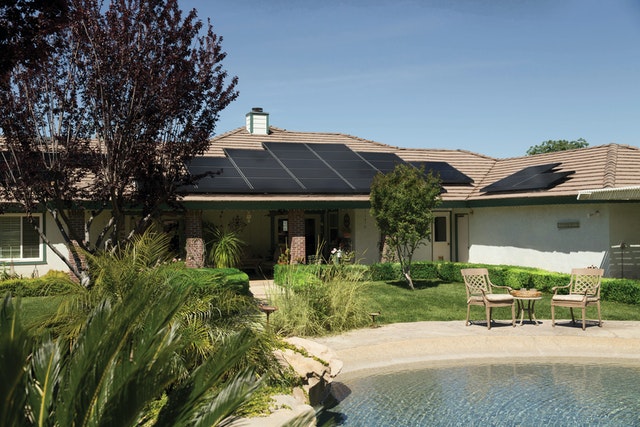
Solar panels are the new renewable energy that makes quite some impact in work. However, just installing one and forgetting about it is not the right way to make use of this excellent energy source.
Did you know that there is a set life span for every solar panel?
If not, you should be aware of the solar panel degradation before installing it for your house. But, do not worry; it wouldn’t degrade that easily, and neither is the life span too short.
So, you do not have to lose hope of running your house with a renewable source of energy. You are definitely doing something for the environment!
What Is Solar Panel Degradation
Solar panel degradation is the falling quality of solar panels with every passing year. However, when we say that your solar panel will degrade, we aren’t saying it will stop working completely.
They will just lose their power to generate a high amount of electricity with time. Sometimes just a change in the inverter can make it run as new, and other times the solar panels might need changing.
What Is The Degradation Age Of A Solar Panel?
When we speak about solar panel degradation, the total lifespan is more than 25 to 30 years. The reason behind people being so pressed about the degradation of solar panels is that installing a solar panel is not easy.
Plus, it costs a lot, and some might refuse to get it installed if it has a short life span. However, you can easily use solar panels for decades.
What is the concept of solar panel degradation, to be exact? The standard degradation rate for every solar panel system is 0.8 percent each year. This means after one year, you will be receiving 99.2% of the general electric power produced by that particular solar panel.
By the end of the 25th year, the solar panel will be working on 82.5% of the power. Now, the degradation rate also heavily depends on the manufacturer.
For example, if the manufacturing produces a solar panel system with a degradation rate of 0.5%, then by the end of the 25th year, the power produced will be 87.5% from the panel.
In order to understand the projected output of the installed solar panels a few years later, you can simply multiply the degradation rate divided by the number of years you are willing to keep the solar panel and then subtract that number from 100%.
Solar panels can also work longer if the exterior is not damaged by disasters, debris, and storms.
Solar panels may also come with different warranties based on the manufacturers, which will give you an idea of the longevity that you can expect from your solar panel’s lifespan.
Manufacturers now are also offering both the equipment warranty, which will protect you against all the manufacturing defects and a performance warranty which will guarantee that your solar panels will produce an amount of electricity beneficial for you.
For every manufacturer, the performance span of the solar panels would typically be more than 25 years, and you can imagine the amount of electricity that it will perform.
What Causes Solar Panel Degradation?
Like any other electronic device, solar panels degrade over time. This is why most solar panel systems come with production warranties. However, when installing a solar power plant in your home or office, you must consider the degradation in the calculation.
Experts state that solar panels degrade somewhere between 0.5% to 3% a year. The percentage depends on how you are maintaining the solar power network and the type of solar light you are using.
There are four main factors that contribute to normal degradation. All the factors come from natural causes.
- Thermal Cycling: Thermal cycling involves fluctuating temperature from extreme heat to extreme cold. This extreme change in the temperature affects the soldered connection within the panel.
- Humidity Freeze: The phenomenon of sudden freezing in the presence of high humidity damages the junction box adhesion.
- Damp Heat: The long-term exposure to high humidity and high temperature result in the separation between the cells and the material that insulates.
- Ultraviolet Exposure: Exposure to the UV rays of the sins can result in the discoloration of the solar cells. This degradation covers the panel that faces away from the sun.
How Can You Make Solar Panels Last Longer?
Since solar panels have to withstand harsh weather and the environment, the manufacturers have already ensured that the build is sturdy. They are made with materials that are generally resistant to strong wind.
Plus, they can last with less maintenance because it is not possible to maintain the solar panels manually all the time.
However, if you still want your solar panels to last longer, then here are a few more things that you can do.
- Clean the debris off of the solar panel system from time to time.
- Always keep your warranty card, and if you can extend it, you should opt for it. These warranty cards are for external equipment damage. If you repair your external equipment from time to time, it will be of great help.
- Purchase your solar planes from reputed companies which will be able to provide you with good warranties and great services.
Frequently Asked Questions
Now that solar panels are becoming such an integral part of our ecosystem, knowing the entire anatomy is very important in order to operate it properly.
Probably this is the reason why you are invested in understanding the degradation of solar panels as well. That is why in the extension of the article, we are also adding some of the frequently asked questions over the internet.
Plus, some experts have even tried to answer them at the same time.
1. Do Energy Production Really Stop After The Solar Panel Declines?
Ans. Yes, every solar panel will degrade after a time period of 20 to 25 years. However, it is not that the solar panels stop producing electricity. However, the intensity in which they have been producing electricity will definitely decrease.
This decrease will happen from the time of manufacturing, so always invest in a solar panel that is new from the factory.
Because by the end of the 25th year, the quality and the power it produces will start deteriorating.
2. Will There Ever Be A Break In The Solar Panel?
Ans. Solar panels, in general, are very sturdy, so you will never have cases of them breaking due to external forces like bad weather. However, the inverter is what degrades with time, and that needs to change with time.
This is one of the reasons why we need to change the solar panel inverter every three decades.
3. Do Solar Panels Degrade The Soil
Ans. The reason why one would ask this question is because of the aluminum. Yes, there is a tiny amount of aluminum that is released onto the solid from a solar panel system. However, there are many studies that have tried to find any harm in that amount, and they haven’t.
That little amount of aluminum that is released into the soil is harming no animal or plant body as such.
4. Why Do Farmers Do Not Want Solar Panels?
Ans. If you don’t know this, then yes, it is true. The agricultural community, especially farmers, has voiced objections toward solar panels, and many have shown objections. This is because they believe that solar panels can harm the soil and that manufacturing can be harmful to the environment.
These are entire myths, and they are not true in any form. As said before, the little amount of aluminum doesn’t harm the soil, and the manufacturing is only with glass and aluminum, which is not harmful at all.
Should You Replace The Solar Panel After 25 Years?
Most solar panels come with a warranty period of 25 years. Some people might think of replacing it once its warranty period is over. However, if you maintain it properly, you can use the solar panel even after 25 years with ease.
Yes, it is also true that they might not be as efficient as they were when they were first installed. So, does that make the replacement necessary?
Here is what we think.
You do not have to replace your solar panels if –
- The solar panel produces enough electricity.
- None of them is broken.
But, you do need to replace, if –
- They produce a little amount of electricity to the point they are not helping you with your home energy consumption.
- Your solar panel network is broken.
The Bottom Line
Solar panels have become an equity method to go green and bring down your monthly expenses in power consumption. Yes, the initial installment process needs heavy investment, but its 25 years of warranted life makes it worthwhile.
As you can see, solar panels are a new technology; you might find it hard to maintain them independently. Working with a reputable installer and keeping in touch for maintenance can help you make the most out of solar panel installation.



